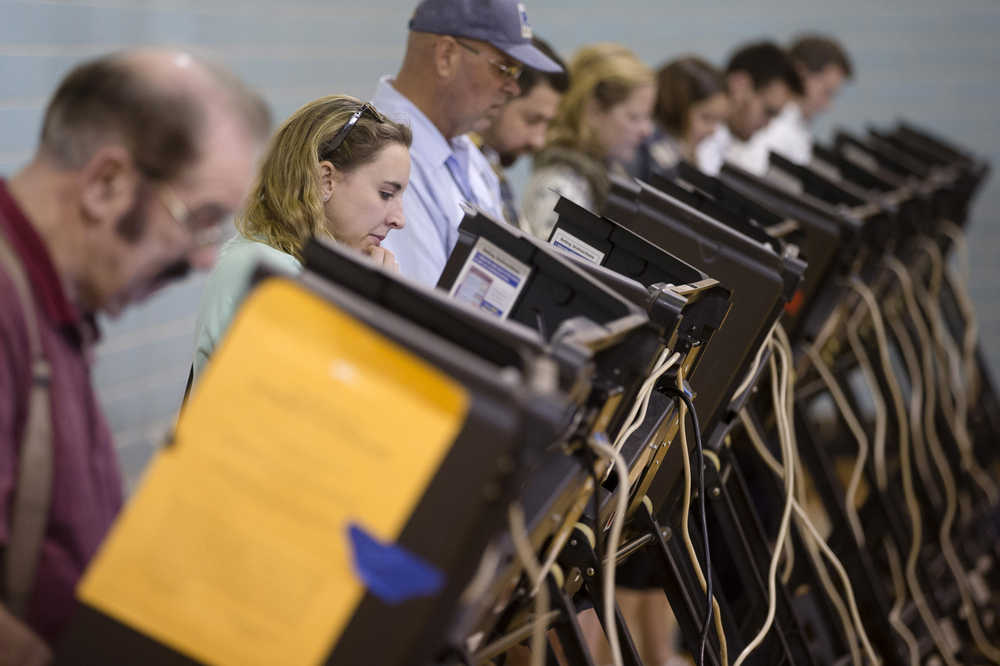COLUMBUS, Ohio — Ohio voters rejected a ballot proposal Tuesday that would have legalized both recreational and medical marijuana in a single vote — a vote-getting strategy that was being watched as a test case for the nation.
Failure of the proposed state constitutional amendment followed an expensive campaign, a legal fight over its ballot wording, an investigation into petition signatures — and, predominantly, a counter campaign fueled by Ohio lawmakers. It was the only marijuana legalization question on the 2015 statewide ballots.
With three-quarters of the votes counted, the issue was losing 65 percent to 35 percent.
Issue 3 would have allowed adults 21 and older to use, purchase or grow certain amounts of marijuana. It also outlined a proposed regulatory and taxation scheme for cannabis and created a network of 10 growing facilities.
That feature was the target of opponents and a separate ballot question to prevent monopolies from being inserted into Ohio’s constitution for the economic benefits of a few.
Campaign director Ian James assured supporters at a downtown Columbus gathering that the fight was not over, calling Tuesday’s defeat “a bump in the road.”
“We need to not only address compassionate care for the chronically ill, we need to also remain vigilant in protecting direct democracy,” he said. “Because when the Statehouse refuses to deal with the voters, the voters have to make them deal to make sure that their voices are heard.”
After his remarks, the anti-monopoly measure passed.
Two older voters in downtown Cincinnati who said they support legalization of marijuana both said they voted against Issue 3 because they didn’t like the “monopoly” element creating exclusive growing sites.
“I can’t believe I voted ‘no’ when it was finally on the ballot,” said Marty Dvorchak, 62, of the northern Cincinnati suburb of Fairfield. “I think it’s ridiculous that marijuana is illegal. The war on drugs has been a failure. But I don’t think 10 people (growers) should have a monopoly.”
At an elementary school in the northern Cincinnati suburb of West Chester, Beth Zielenski, said she voted no on the marijuana question. The mother of one from cited concerns about how marijuana and edible pot products would be regulated.
Colorado, Washington, Oregon and Alaska, along with the District of Columbia, have legalized recreational marijuana. Medical marijuana is now legal in about half of states.
Gov. John Kasich, a Republican presidential candidate, praised the state’s decision.
“At a time when too many families are being torn apart by drug abuse, Ohioans said no to easy access to drugs and instead chose a path that helps strengthen our families and communities,” he said in a statement.
The pro-legalization ResponsibleOhio campaign included several famous faces, including boy band star Nick Lachey and basketball great Oscar Robertson. The campaign had spent $12 million as of its most recent campaign filing and reported raising about the same amount.
“Issue 3 was nothing more and nothing less than a business plan to seize control of the recreational marijuana market in Ohio,” Curt Steiner, director of Ohioans Against Marijuana Monopolies, said in election night remarks. “Issue 3 was designed and built primarily to garner massive and exclusive profits for a small group of self-selected wealthy investors.”
___
AP writers Dan Sewell in Cincinnati and Ann Sanner in Columbus contributed to this report.
___
This story has been corrected to show Ohio is the only state with a ballot question Tuesday on legalizing marijuana, not the only state with a pot-related question.

